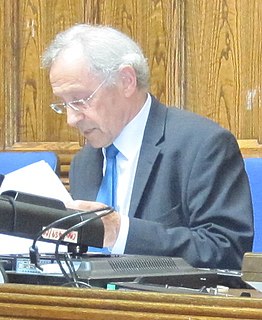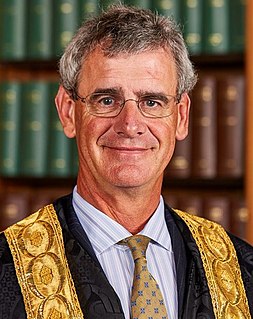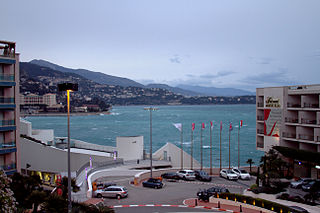The patentability of software, computer programs and computer-implemented inventions under the European Patent Convention (EPC) is the extent to which subject matter in these fields is patentable under the Convention on the Grant of European Patents of October 5, 1973. The subject also includes the question of whether European patents granted by the European Patent Office (EPO) in these fields are regarded as valid by national courts.
The WTO's Agreement on Trade-Related Aspects of Intellectual Property Rights (TRIPS), particularly Article 27, is occasionally referenced in the political debate on the international legal framework for the patentability of software, and on whether software and computer-implemented inventions should be considered as a field of technology.
The inventive step and non-obviousness reflect a general patentability requirement present in most patent laws, according to which an invention should be sufficiently inventive—i.e., non-obvious—in order to be patented. In other words, "[the] nonobviousness principle asks whether the invention is an adequate distance beyond or above the state of the art".
Patentable, statutory or patent-eligible subject matter is subject matter which is susceptible of patent protection. The laws or patent practices of many countries provide that certain subject-matter is excluded from patentability, even if the invention is novel and non-obvious. Together with criteria such as novelty, inventive step or nonobviousness, utility, and industrial applicability, which differ from country to country, the question of whether a particular subject matter is patentable is one of the substantive requirements for patentability.
Menashe Business Mercantile Ltd. & Anor v William Hill Organization Ltd. [2002] EWCA Civ 1702 was a patent case regarding Internet usage. The case addressed a European patent covering the United Kingdom for an invention referred to as "Interactive, computerized gaming system with remote control". Menashe sued William Hill, claiming that William Hill was infringing the patent by operating an online gaming system. William Hill's defence argued that it did not infringe the patent because the server on which it operated the system was located outside of the UK, in Antigua or Curaçao. Although accepting that their supply of software was in the UK and that this was an essential part of the invention, they further argued that the patent was for the parts of the system, and as one essential part of the system was not located in the UK, there could be no infringement.
There are four overriding requirements for a patent to be granted under United Kingdom patent law. Firstly, there must have been an invention. That invention must be novel, inventive and susceptible of industrial application.
Richard Mawrey, QC is a barrister and Deputy High Court Judge in the United Kingdom. He is a bencher of Gray's Inn and a member of Henderson Chambers. In his role as a judge in election cases, he has repeatedly criticised the postal voting system in the United Kingdom.
Dehns is a United Kingdom firm of patent and trade mark attorneys, with offices in London, Munich, Oslo, Oxford, Brighton, Manchester, Sandwich and Bristol. It was founded in 1920 by Frank Bernard Dehn.

Aerotel v Telco and Macrossan's Application is a judgment by the Court of Appeal of England and Wales. The judgment was passed down on 27 October 2006 and relates to two different appeals from decisions of the High Court. The first case involved GB 2171877 granted to Aerotel Ltd and their infringement action against Telco Holdings Ltd and others. The second case concerned GB application 2388937 filed by Neal Macrossan but refused by the UK Patent Office.

Sir Stephen Sedley is a British lawyer. He worked as a judge of the Court of Appeal of England and Wales from 1999 to 2011 and is currently a visiting professor at the University of Oxford.
Sir Robert Raphael Hayim "Robin" Jacob, PC is a former judge in the Court of Appeal of England and Wales.
Fujitsu's Application [1997] EWCA Civ 1174 is a 6 March 1997 judgment by the Court of Appeal of England and Wales. The judges' decision was to confirm the refusal of a patent by the United Kingdom Patent Office and by Mr Justice Laddie in the High Court. Lord Justice Aldous heard the appeal before the Court of Appeal.

Michael Townley Featherstone Briggs, Lord Briggs of Westbourne, is a Justice of the Supreme Court of the United Kingdom. He served earlier as a judge of the Court of Appeal of England and Wales. By Royal Warrant, he bears the courtesy title of Lord Briggs of Westbourne.
Bristows is a full-service commercial, law firm, particularly known for its technology and intellectual property work.

In Canada, every patent application must include the “specification”. The patent specification has three parts: the disclosure, the claims, and the abstract. The contents of the specification are crucial in patent litigation.

FHR European Ventures LLP v Cedar Capital Partners LLC[2014] UKSC 45 is a landmark decision of the United Kingdom Supreme Court which holds that a bribe or secret commission accepted by an agent is held on trust for his principal. In so ruling, the Court partially overruled Sinclair Investments (UK) Ltd v Versailles Trade Finance Ltd in favour of The Attorney General for Hong Kong v Reid (UKPC), a ruling from the Judicial Committee of the Privy Council on appeal from New Zealand.
The British Post Office scandal involved the wrongful prosecution of 732 sub-postmasters (SPMs) for theft, false accounting and/or fraud. The prosecutions, civil actions, and extortions resulted in criminal convictions, false confessions, imprisonments, defamation, loss of livelihood, bankruptcy, divorce, and suicide.
DABUS is an artificial intelligence (AI) system created by Stephen Thaler. It reportedly conceived two inventions. The filing of patent applications designating DABUS as inventor has led to decisions by patent offices and courts on whether a patent can be granted for an invention reportedly made by an AI system.





